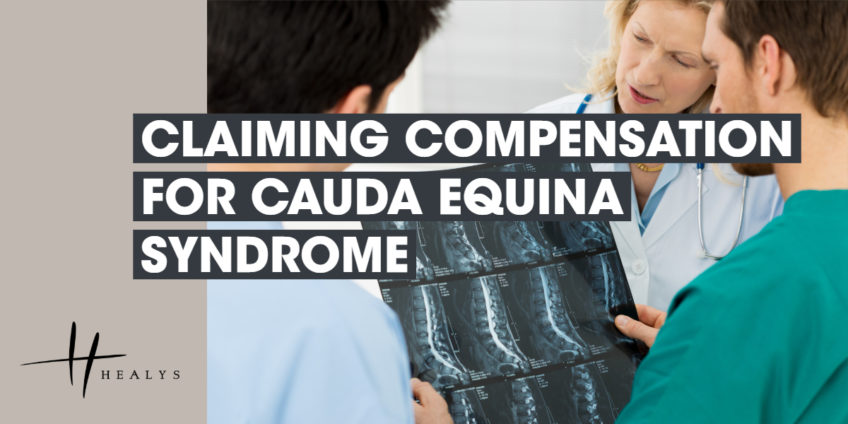Claiming Compensation For Cauda Equina Syndrome
For sufferers of Cauda Equina Syndrome, failure or delay in diagnosis can have permanent and life-changing consequences. Those who have been misdiagnosed or who have developed the condition as a result of another medical procedure may be able to claim compensation.
Cauda Equina Syndrome is a rare but severe narrowing of the spinal canal, and sudden compression of the nerves at the end of the spinal column. These nerves, named for their resemblance to a horses tail (Cauda Equina in Latin) carry signals to the pelvic region and the legs, and when damaged can cause problems such as back pain, numbness or weakness in and between the legs, and incontinence.
There are many different causes of Cauda Equina Syndrome, including trauma to and infection or tumours of the spine, as well as other conditions such as Lumbar Spinal Stenosis. Whatever the cause, it is imperative that an accurate diagnosis be made as soon as possible. Cauda Equina Syndrome can progress quickly and suddenly, and may require hospital admission and surgery. The symptoms of Cauda Equina Syndrome are, however, similar to other conditions such as sciatica, and the syndrome is known to be difficult to diagnose.
It is for this reason that sometimes this condition is misdiagnosed or not diagnosed at all; and there have been several high-profile news stories concerning patients having been prematurely turned away from urgently needed medical treatment. This year, the MPS and NICE have revised the “red flags” which should be heeded during diagnosis: symptoms which when presented could indicate Cauda Equina. These changes are hoped to make it easier for healthcare professionals to make correct, timely and effective referrals in the future.
The personal accounts of patients and recent research by the MPS has shown that failure or delay in the diagnosis and treatment of Cauda Equina can lead to serious disability in those affected. Cauda Equina Syndrome frequently requires surgical intervention in the form of decompression of the nerve cluster; and any delay to surgery means that debilitating symptoms can become permanent. Victims may suffer from chronic pain, numbness, reduced mobility and loss of control of the bowel and bladder. Despite treatment, a poor outcome occurs in approximately 20% of people, and some will continue to experience these problems after surgery.
Jonathan Austen-Jones, Medical Negligence partner, says: “Cauda Equina Syndrome is a medical emergency, which if not properly diagnosed and treated can lead to life-changing injuries and consequences. Due to the severe and permanent disabilities that can occur as a result, the non-diagnosis or misdiagnosis of Cauda Equina Syndrome is among the top errors made by GPs that led to the most expensive compensation claims. “
If you feel that you have suffered from missed or delayed diagnosis or treatment of Cauda Equina Syndrome, or have developed the condition as a result of another medical procedure, you may be able to seek compensation to help with rehabilitation and treatment, and to fund any adjustments necessary to your home or lifestyle.
Please contact us at enquiries@healys.old-website.shout-loud.co.uk for further information or advice.

